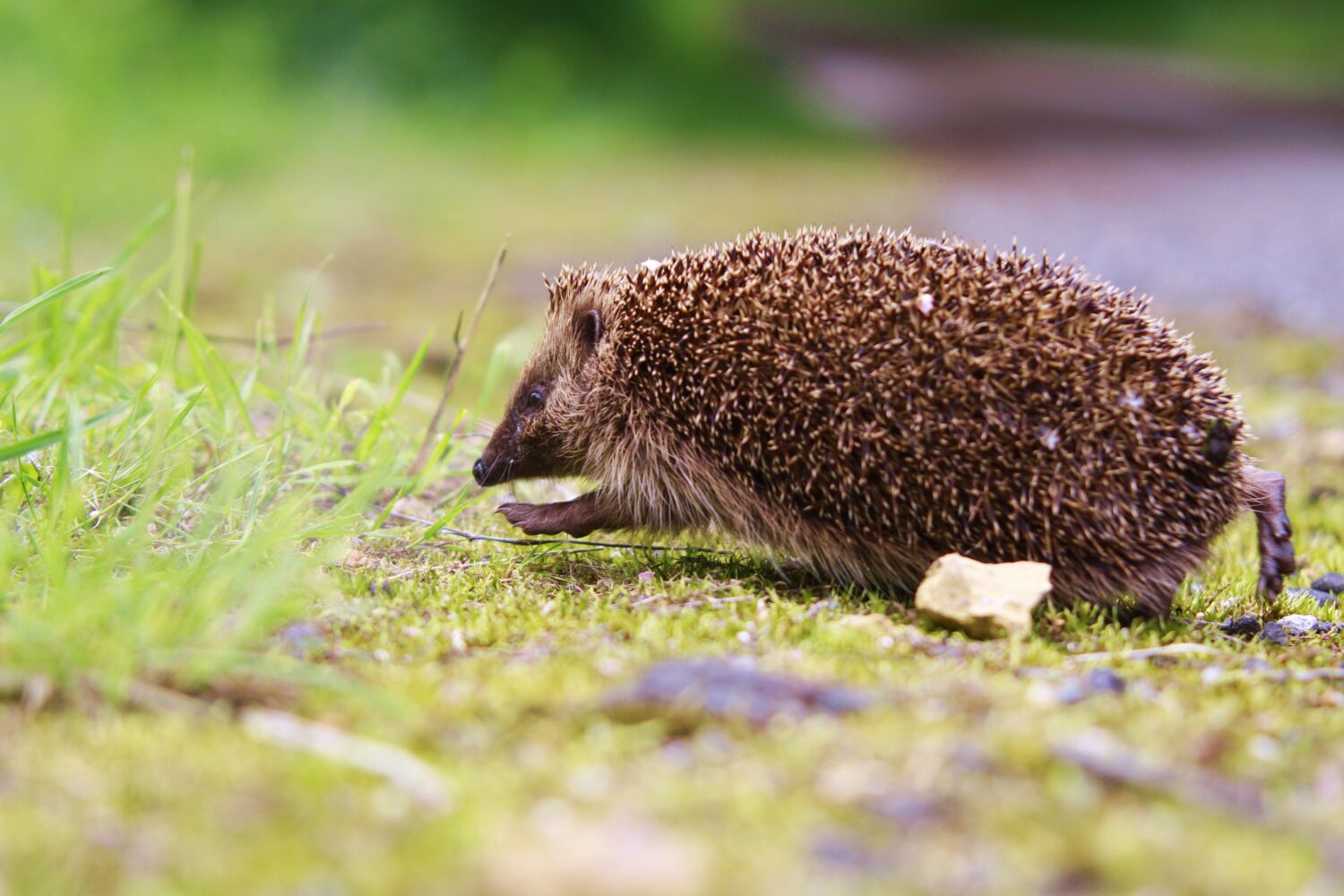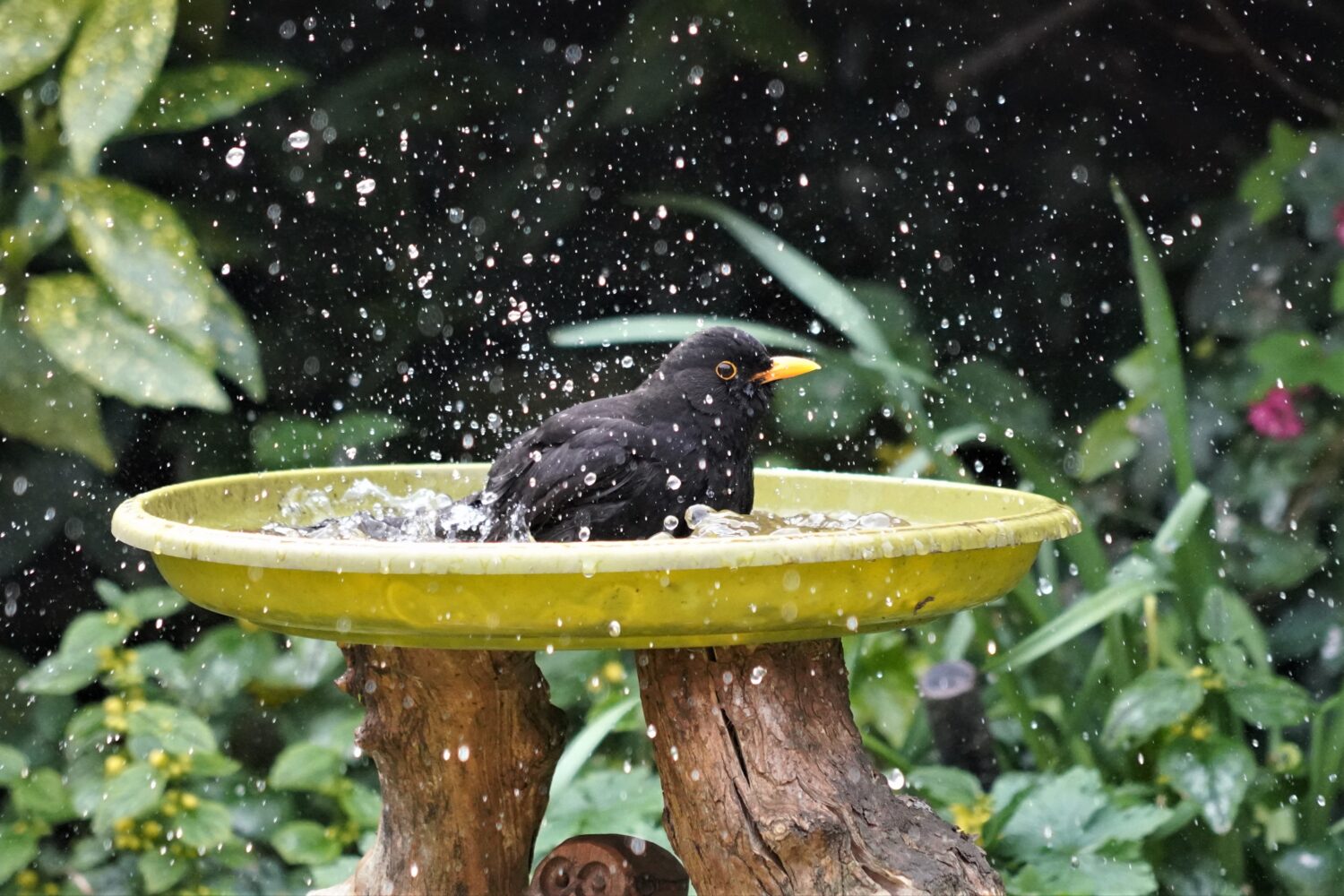As the weather turns colder and nature starts to quiet down, there are still lots of things you can do to help wildlife on your doorstep. Whether in your garden or with your local community group, here are ten top tips for helping wildlife this season.
1. Leave or Plant a Hedge
Leaving your hedge to grow or planting a new one can be a great way to attract wildlife seeking shelter or food. Don’t cut back your hedge when it is producing berries, as this is a great food source for hungry birds and mammals when food is scarce. Planting a hedge or shrub can offer shelter and food for many animals. Using Hawthorn, Blackthorn, Bramble, Dog Rose, Guelder Rose, Honeysuckle or Ivy are all great options to provide either blossom, fruit or nectar.
2. Bird Homes
If possible, you can put up a bird box for birds to roost in during winter or get one ready for spring when birds start breeding. If you already have a bird box, it may be time to give it a good clean for when the birds start looking for a place to raise their young.
3. Leave Seedheads
Many people will cut back seed heads when plants die, but these can be a great food source for birds and mammals as well as shelter for ladybirds. The dead stems of plants can also protect your soil from frost damage. Some of the best wildlife friendly plants to grow for winter seedheads include Teasel, Alliums, Echinacea and Phlomis.
4. Monitor Hedgehog Feeding Stations
Although Hedgehogs will be hibernating from October to April, they can still be out and about in early winter, if the weather is mild. They may also come out if their fat reserves are depleted, so leaving food such as dry cat biscuits out on a plate will be an appealing sight for a hungry Hedgehog.
5. Thaw Ice
Whether you have a bird bath or pond, it is important to keep the water thawed. For bird baths and tables, having thawed water allows birds to drink and bath and for ponds, it can allow wildlife to get in and out as well as drink. Pouring warm, not boiling, water over the ice will gently melt it, as cracking the ice can cause shocks through the pond which will disturb wildlife. In ponds, try placing a ball on top of the water to prevent all of the pond freezing, allowing some breathing room for underwater creatures like frogs and newts.
6. Make a Toad Home
Using an upturned plant pot, even one with a few cracks in, can provide great shelter for Toads. Place the plant pot on soil or lay the pot on its side and half fill with soil or leaves to allow the toads to rest and conserve their energy. You could even decorate your ‘toad hall’ home!
7. Feed Birds and Small Mammals
Food becomes more difficult to find in winter so putting out food can make a real difference. Seeds, nuts, fat balls, apples and dried fruit are all great options, either in bird feeders, or in small balls close to the ground. Keeping a small dish of water close to the ground will also allow small mammals to drink.
8. Grow Your Grass
Growing your grass long provides shelter for insects, mice and frogs. So let it grow! Growing your grass, in winter when you may not be in your garden as much, is an especially good time. If you’d rather not leave your whole patch of grass to grow, why not leave a small section in a corner instead.
9. Leave the Leaves
Any piles of leaves that form in your garden, don’t sweep them away as you may have something taking a rest in them. Not sweeping away leaves will allow animals who use leaves to line their burrows or nests to have ample material to cosy up their homes for the winter. Also, leaving leaves for worms and other soil dwelling insects to decompose will provide nutrients for the soil and save you a job sweeping up!
10. Provide Water
Leaving out water for birds and mammals is a small task but allows wildlife to have a drink or bath, especially when other water sources start to freeze, and water becomes scarcer.


Whether you do all or one of these top tips to help wildlife this winter, in your garden or local community green space, know that you are helping wildlife make it through the colder days and giving a little bit back to nature.
